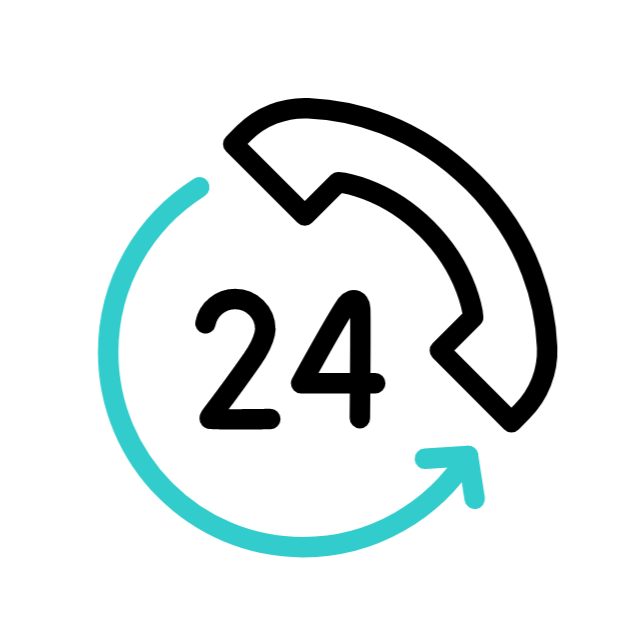Stress Management at Home in Dubai: A Comprehensive Guide
Table of Contents
Dubai, the dynamic city renowned for its majestic high-rises, opulent lifestyle, and lively culture, can sometimes become a source of heightened stress levels. With the pressures of work and the rapid urban lifestyle, residents of Dubai must seek out reliable methods to alleviate stress, particularly at home. This detailed guide will delve into various stress reduction strategies designed for those living in Dubai, aiming to transform your living space into a tranquil haven.
Understanding Stress in Dubai
Before delving into stress management at home strategies, it’s crucial to understand the unique stressors faced by Dubai residents. This chapter will cover:
Work-related stress: The challenges of Dubai's competitive job market and long working hours.
1.2. Cultural and social stress: Navigating cultural diversity and social expectations.
1.3. Financial stress: Managing expenses in a city known for its high cost of living.
1.4. Health-related stress: The importance of physical and mental well-being.
Creating a Stress-Free Environment
The first step in managing stress at home is to create a tranquil environment. This chapter will discuss:
- Home organization and decluttering tips.
- The role of interior design in reducing stress.
- Creating a designated relaxation space.
- Harnessing the power of aromatherapy and soothing colors.
Mindful Living Practices
Mindfulness is a powerful tool for managing stress. In this chapter, we’ll explore:
- The basics of mindfulness meditation.
- Breathing exercises for instant relaxation.
- Mindful eating and its impact on stress levels.
- Incorporating mindfulness into daily routines.
Exercise and Fitness
Physical activity is essential for managing stress. We’ll cover:
- The benefits of regular exercise on mental health.
- Creating a home workout space.
- Yoga and its role in stress reduction.
- Connecting with nature through outdoor activities in Dubai.
Nutrition for Stress Management At Home
Diet plays a significant role in managing stress. This chapter will explore:
5.1. Stress-reducing foods and beverages.
5.2. Meal planning and preparation strategies.
5.3. The importance of hydration in stress management at home.
5.4. Dietary supplements to support mental well-being.
Building Supportive Relationships
Strong relationships can act as a buffer against stress. We’ll discuss:
6.1. Effective communication in relationships.
6.2. The importance of social support networks.
6.3. Family dynamics and stress management at home.
6.4. Seeking professional help when needed.
Time Management and Productivity
Efficiently managing your time can alleviate stress. This chapter will cover:
7.1. Time management techniques tailored for Dubai’s busy lifestyle.
7.2. Setting realistic goals and priorities. 7.3.
Balancing work and personal life. 7.4.
The art of delegation and outsourcing.
Financial Well-being
Financial stress can be particularly challenging in Dubai. We’ll explore:
8.1. Budgeting and financial planning.
8.2. Savings and investment strategies.
8.3. Seeking financial advice when necessary.
8.4. Coping with economic uncertainty.
Technology and Screen Time
Dubai residents are often connected 24/7. This chapter will address:
9.1. The impact of excessive screen time on stress levels.
9.2. Digital detox strategies.
9.3. Balancing technology use for work and leisure.
9.4. Mindful tech consumption.
Self-Care and Leisure Activities
Self-care is essential for stress management. We’ll explore:
10.1. Engaging in hobbies and leisure activities.
10.2. Spa and wellness options in Dubai.
10.3. Finding joy in cultural experiences.
10.4. The role of travel in relaxation.
Certainly, let's delve deeper into each chapter to provide a more comprehensive understanding of Stress Management at home in Dubai.
Understanding Stress in Dubai
Work-related stress:

The job market in Dubai is well-known for its stringent demands, extended work periods, and rigorous rivalry. Striving for professional achievement often results in increased stress levels. In this discussion, we will delve into approaches to maintain a balance between work and life and to handle stress associated with one’s profession.
Cultural and social stress:
Dubai’s international ambiance attracts individuals from all around the world with varied cultural heritages. Although this mix of cultures constitutes one of Dubai’s major assets, it occasionally gives rise to misunderstandings and societal tensions. This discussion aims to explore strategies for overcoming these obstacles and building constructive interactions with people from different cultural origins.
Financial stress:
Living in Dubai, known for its opulence, inevitably means dealing with a considerable cost of living. This reality can be particularly taxing on one’s budget, especially for those from overseas. In this segment, we aim to explore effective strategies for managing your finances through budgeting, saving, and investing, with the goal of reducing financial anxiety.
Health-related stress:
In Dubai, finding the right equilibrium among professional commitments, social interactions, and personal health is often a complex task. This discussion will delve into the significance of consistent health screenings, the pursuit of a well-rounded diet, and the necessity of sufficient physical activity to cultivate both physical and psychological health.
Creating a Stress-Free Environment
Home organization and decluttering:
Dubai’s fast-paced lifestyle can result in a cluttered and chaotic home environment. We’ll offer step-by-step guidance on decluttering and organizing your living space to create a serene atmosphere.
Interior design:
Dubai’s architectural marvels are world-famous, but your home can also be a place of beauty and tranquility. Discover how thoughtful interior design choices, such as incorporating natural elements and soothing color palettes, can positively impact your mood and reduce stress.
Creating a designated relaxation space:
In the midst of Dubai’s urban hustle and bustle, having a designated relaxation space in your home is crucial. We’ll provide tips on setting up a calm and peaceful area where you can unwind and de-stress.
Aromatherapy and soothing colors:
Learn about the power of aromatherapy and how the right scents can promote relaxation. We’ll also delve into the psychology of colors and how selecting calming hues for your home can contribute to stress reduction.
Mindful Living Practices
Basics of mindfulness meditation:
Dive deep into the practice of mindfulness meditation. We’ll provide techniques and guidance on how to start and maintain a regular mindfulness meditation practice, even in the midst of a busy Dubai schedule.
Breathing exercises:
Stress can often manifest as physical tension. Discover effective breathing exercises that can help you relax, reduce anxiety, and improve your overall well-being.
Mindful eating:
Eating mindfully is a powerful way to manage stress. We’ll explore how to cultivate a healthier relationship with food and make conscious choices that support your mental and physical health.
Incorporating mindfulness:
Discover how to extend practices of mindfulness beyond meditation into your everyday activities. Learn to integrate mindful practices into everyday tasks like walking, driving, or working. Doing so can significantly boost your levels of calmness and mindfulness throughout the day.
This handbook is designed to provide people living in Dubai with a detailed exploration of each topic, supplying them with a complete set of tools for handling stress effectively from the comfort of their own homes. Given that stress is an inevitable aspect of contemporary life, possessing the right methods and support can help manage it effectively, turning it into a chance for personal advancement and improved well-being.
Certainly, let's break down the expanded content of each chapter to provide a clearer understanding of stress management at home in Dubai:
Work-related stress:
Dubai’s job market is characterized by its rigorous demands, with numerous individuals dedicating extended hours to attain professional success. This discussion will explore the unique challenges encountered on the job and provide actionable advice for maintaining a healthy balance between professional responsibilities and personal life. Suggestions will include adopting effective time management practices, establishing clear boundaries, and exploring avenues for career advancement and development.
Cultural and social stress:
The cultural variety in Dubai offers opportunities for enrichment as well as certain challenges. This segment delves into the distinct pressures that arise from cultural differences and societal expectations. Through this exploration, readers will acquire an understanding of how to communicate effectively, be culturally aware, and develop strategies to foster positive interactions in this diverse setting.
Financial stress:
Navigating the financial landscape in Dubai, known for its elevated living expenses, often proves to be a significant stressor. This section aims to offer comprehensive advice on financial management, encompassing budget formulation, techniques for saving, and investment opportunities tailored to the distinct economic environment of Dubai. Additionally, strategies for managing sudden economic difficulties and unpredictability will be discussed.
Health-related stress:
Striking a balance between a demanding lifestyle and health and wellness poses a significant hurdle for many in Dubai. This portion is dedicated to highlighting the significance of consistent health screenings, a diet that is well-rounded, and fitting physical activity into everyday life. Through this, readers will discover actionable advice on how to preserve both their physical and mental well-being amidst the bustling pace of the city.
Creating a Stress-Free Environment
Home organization and decluttering:
The fast-paced lifestyle in Dubai often leads to homes becoming cluttered and disorganized. This section provides a comprehensive guide on how to declutter and reorganize living areas to achieve a calm and stress-free environment. It will cover advice on how to effectively use storage options, make the most of available space, and techniques for decluttering.
Interior design:
The section devoted to interior design will delve into the ways in which those living in Dubai can turn their living spaces into sanctuaries of peace. This segment aims to shed light on the emotional effects that various design elements, including the selection of colors, the arrangement of lighting, and the placement of furniture, have on reducing stress. It will equip readers with the knowledge to select designs that foster a sense of calm and enhance overall well-being.
Creating a designated relaxation space:
In a lively metropolis such as Dubai, having a personal relaxation zone is crucial. This part will offer tips on establishing such an area in your abode. It might suggest methods for setting up snug spots for reading, areas dedicated to meditation, or a peaceful retreat in the outdoors, depending on the space you have at your disposal.
Aromatherapy and soothing colors:
The use of aromatherapy alongside color theory has a notable impact on emotional well-being and stress reduction. This section delves into the practice of integrating specific fragrances and hues into your living space to foster a sense of calm. It will offer practical advice on how to use essential oils and choose soothing color schemes.
As the guide dissects the content of each chapter with this approach, it transforms into a more practical and insightful resource for residents of Dubai who are searching for effective ways to manage stress at home. Every part of this guide delivers detailed advice and specific suggestions designed to confront the distinctive challenges and lifestyle associated with residing in Dubai, with the goal of improving overall welfare and minimizing stress within the confines of the home.
Certainly, let's provide concrete examples to illustrate the concepts discussed in the expanded chapters of our guide on Stress Management At Home in Dubai:
Work-related stress:
Living in Dubai, Sarah is employed in an industry known for its fierce competitiveness and demands for extended work hours. To alleviate the stress stemming from her job, she has adopted time management strategies, such as the Pomodoro technique, which involves intervals of concentrated work followed by brief pauses. Additionally, she ensures that after work hours, she disconnects from work notifications, which allows her the freedom to enjoy valuable moments with her family and engage in her personal hobbies.
Cultural and social stress:
Living as an expat in Dubai, Ahmed has encountered obstacles in forging meaningful connections, primarily due to cultural discrepancies. To bridge this gap, he has engaged in workshops on cultural awareness, seeking to gain a deeper appreciation for the local customs and practices. Furthermore, Ahmed has taken a proactive approach to integration by getting involved in various community activities and offering his time for volunteer work, efforts that have steadily alleviated his feelings of social isolation.
Financial stress:
Omar and Layla, a young couple living in Dubai, feel overwhelmed by their expenses. They decide to create a detailed monthly budget that includes essential expenses, savings, and discretionary spending. They also explore investment options, such as Dubai’s real estate market, to grow their wealth over time, thereby alleviating their financial stress.
Health-related stress:
Fatima, a Dubai professional, realizes that her health has been neglected due to her hectic schedule. She starts scheduling regular health check-ups and consults a nutritionist to create a balanced meal plan. She incorporates daily walks along Dubai’s scenic waterfront as a form of exercise, benefiting both her physical and mental health.
Creating a Stress-Free Environment
Home organization and decluttering:
Ahmed and Aisha’s home was cluttered with unused items, causing stress. They decide to declutter systematically, starting with one room at a time. By selling or donating items they no longer need, they create a more organized living space, reducing daily stress.
Interior design:
Jamal and Farida understand that colors can impact their mood. They decided to repaint their bedroom with calming colors like soft blues and greens. They also invest in ergonomic furniture that not only enhances the aesthetics of their home but also provides comfort and relaxation.
Creating a designated relaxation space:
Fatima dedicates a corner of her living room to mindfulness practice. She places a comfortable cushion, soothing artwork, and a diffuser with lavender essential oil. This designated space serves as a sanctuary where she can meditate and unwind.
Aromatherapy and soothing colors:
Sarah endeavors to establish a tranquil environment within her domicile by embracing the use of essential oils such as lavender and chamomile. In her bedroom, she relies on a diffuser for essential oils to foster a sense of calm. For the living area, she opts for gentle, natural tones in the décor and enhances the space with houseplants to simulate an indoor natural setting.
These instances from everyday life aptly illustrate how the methodologies delineated in the various chapters can be practically implemented by individuals living in Dubai to manage stress more effectively at home. By customizing home-based stress relief methods to fit their personal needs, people can significantly diminish stress levels and augment their overall quality of life within their living spaces. These real-world applications offer guidance and motivation for those in Dubai seeking to transform their residences into serene havens.
Certainly, let's clarify the content of each chapter further by providing specific examples to illustrate the concepts:
Work-related stress:
Living in Dubai, Sarah is employed in a high-pressure sector known for its extensive working hours, which often leaves her swamped with duties. To cope with the stress stemming from her job, she has adopted certain strategies. She has begun to delineate clear boundaries for herself, such as refraining from checking work emails after 7 PM. Additionally, Sarah has started employing time management tactics like the Eisenhower Matrix to better organize her tasks according to their urgency and importance, aiming to alleviate the strain caused by her professional commitments.
Cultural and social stress:
Living abroad, Ahmed often struggles to establish rapport with his colleagues from the UAE due to the cultural divide. To bridge this gap, he participates in cultural sensitivity sessions to gain a deeper appreciation for their way of life and beliefs. Furthermore, Ahmed has become active in a community group focused on cultural exchange to foster relationships and mitigate the feeling of social isolation.
Financial stress:
In Dubai, the young duo Omar and Layla find themselves wrestling with the challenge of setting aside savings amid the steep living costs. They respond by mapping out a meticulous budget that accounts for critical expenditures such as housing and food, while also allotting funds for savings. Additionally, they delve into investment opportunities, particularly eyeing a mutual fund based in the UAE, as a strategy to enhance their financial wellbeing and mitigate monetary worries.
Health-related stress:
Noticing a decline in her health due to inactive living, Fatima, who is based in Dubai, decides to adopt a new regimen. She incorporates a daily morning stroll for 30 minutes by the scenic waterfront of Dubai into her routine. This change not only bolsters her physical fitness but also diminishes her stress and enhances her overall mental health.
Home organization and decluttering:
Ahmed and Aisha’s home was cluttered with unused items, making it feel chaotic. They decide to declutter one room at a time, starting with their living room. They donate old clothes, sell unused furniture, and invest in storage solutions to create a more organized and stress-free living space.
Interior design:
Jamal and Farida want to create a calming atmosphere in their home. They repaint their bedroom with soft, soothing colors like light blue and pale green. They also incorporate natural elements, like wooden furniture and indoor plants, to enhance the tranquility of their living space.
Creating a designated relaxation space:
Fatima designates a corner of her bedroom as her relaxation space. She places a comfortable chair, a soft rug, and a shelf with her favorite books. This corner becomes her sanctuary where she practices mindfulness meditation and escapes from daily stressors.
Aromatherapy and soothing colors:
Sarah uses aromatherapy to unwind after a long day. She fills her bedroom with the calming scent of lavender using an essential oil diffuser. She also chooses earthy tones like beige and soft gray for her bedroom decor, creating a peaceful environment conducive to relaxation.
These examples provide concrete scenarios of how Dubai residents can apply the strategies discussed in each chapter to manage stress effectively within their homes. By tailoring these techniques to their individual circumstances, individuals can create a more serene and stress-free living environment in Dubai.
FAQ on "Stress Management at Home in Dubai: A Comprehensive Guide":
What are some effective stress management techniques I can practice at home in Dubai?
Some effective stress management techniques you can practice at home in Dubai include:
- Mindfulness and Meditation: Practicing mindfulness and meditation can help calm your mind and reduce stress. Apps like Headspace or Calm can guide you through meditation sessions.
- Exercise: Regular physical activity, such as yoga, jogging, or home workouts, can help reduce stress levels.
- Healthy Diet: Eating a balanced diet with plenty of fruits, vegetables, and lean proteins can improve your overall well-being and help manage stress.
- Breathing Exercises: Deep breathing exercises can help you relax and lower stress levels. Try techniques like diaphragmatic breathing or the 4-7-8 breathing method.
- Hobbies: Engage in hobbies or activities you enjoy, such as reading, painting, or gardening, to take your mind off stress.
How can I create a stress-free environment at home in Dubai?
Creating a stress-free environment at home involves several steps:
- Declutter: Keep your living space tidy and organized to reduce visual stress and create a calm atmosphere.
- Comfortable Space: Designate a comfortable space for relaxation, such as a cozy reading nook or a meditation corner.
- Nature Elements: Incorporate elements of nature, such as indoor plants, to improve air quality and create a serene environment.
- Lighting: Use soft, warm lighting instead of harsh fluorescent lights to create a calming ambiance.
- Aromatherapy: Use essential oils or scented candles with calming scents like lavender or chamomile to enhance relaxation.
Are there any local resources in Dubai for stress management?
Yes, Dubai offers several local resources for stress management:
- Wellness Centers: Many wellness centers and spas in Dubai offer services like massages, aromatherapy, and meditation classes.
- Fitness Clubs: Fitness clubs and gyms often provide yoga and Pilates classes that can help reduce stress.
- Mental Health Services: Dubai has various mental health professionals, including therapists and counselors, who can provide support for stress management.
- Community Groups: Joining local community groups or support groups can provide social support and help manage stress.
- Online Resources: There are also numerous online resources, including webinars, workshops, and courses, that focus on stress management techniques.
How can I balance work and stress management while working from home in Dubai?
Balancing work and stress management while working from home requires discipline and good habits:
- Set Boundaries: Establish clear boundaries between work and personal time. Designate specific work hours and stick to them.
- Breaks: Take regular breaks throughout the day to stretch, relax, and recharge. Use techniques like the Pomodoro Technique to manage your time effectively.
- Workspace: Create a dedicated workspace that is comfortable and free from distractions.
- Prioritize Tasks: Prioritize your tasks and focus on completing the most important ones first. Use to-do lists or task management apps to stay organized.
- Self-Care: Incorporate self-care practices into your daily routine, such as exercise, healthy eating, and relaxation techniques.
What role does diet play in stress management, and what foods should I include in my diet?
Diet plays a crucial role in stress management. Certain foods can help reduce stress and improve overall well-being:
- Fruits and Vegetables: Incorporate a variety of fruits and vegetables into your diet to provide essential vitamins and minerals.
- Whole Grains: Whole grains like brown rice, quinoa, and oats can help stabilize blood sugar levels and improve mood.
- Lean Proteins: Include lean proteins such as chicken, fish, beans, and legumes to support brain function and energy levels.
- Healthy Fats: Healthy fats found in avocados, nuts, seeds, and olive oil can help reduce inflammation and improve brain health.
- Hydration: Drink plenty of water to stay hydrated, as dehydration can increase stress levels. Limit caffeine and alcohol intake, as they can contribute to anxiety and stress.
Can technology help in managing stress at home, and what apps or tools do you recommend?
Yes, technology can be a valuable tool in managing stress at home. Some recommended apps and tools include:
- Meditation Apps: Apps like Headspace, Calm, and Insight Timer offer guided meditation sessions and mindfulness exercises.
- Fitness Apps: Apps like Nike Training Club, MyFitnessPal, and 7 Minute Workout provide workout routines and fitness tracking.
- Sleep Apps: Apps like Sleep Cycle and Pzizz can help improve sleep quality by providing soothing sounds and sleep tracking.
- Breathing Exercises: Apps like Breathe2Relax and Pranayama offer guided breathing exercises to help reduce stress.
- Productivity Tools: Tools like Trello, Todoist, and Evernote can help you stay organized and manage tasks effectively, reducing work-related stress.
Get Better With 24 Seven Home Care
Healing & Wellness At Your Doorstep
+971 50 8988247/+971 800 24724




